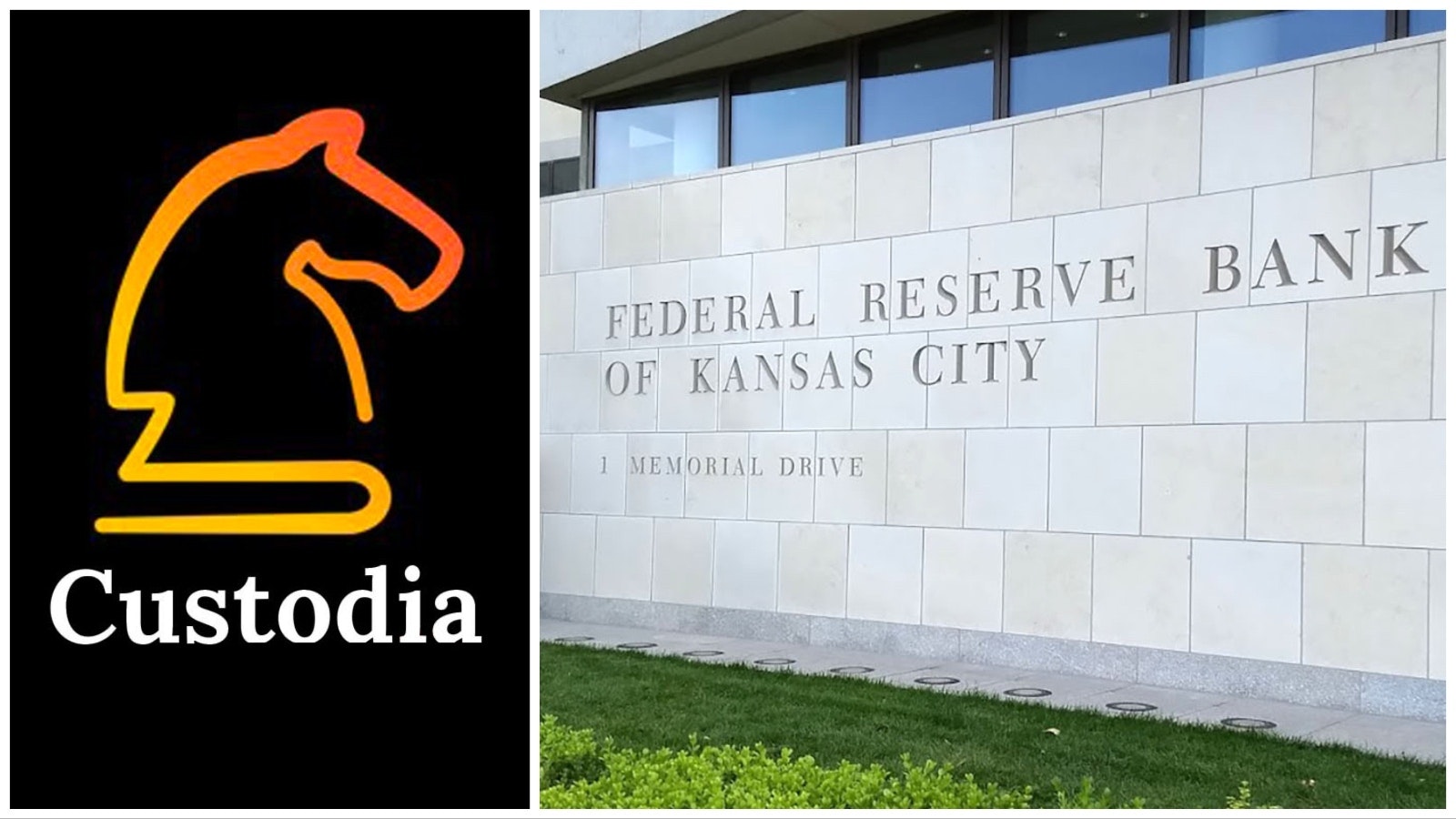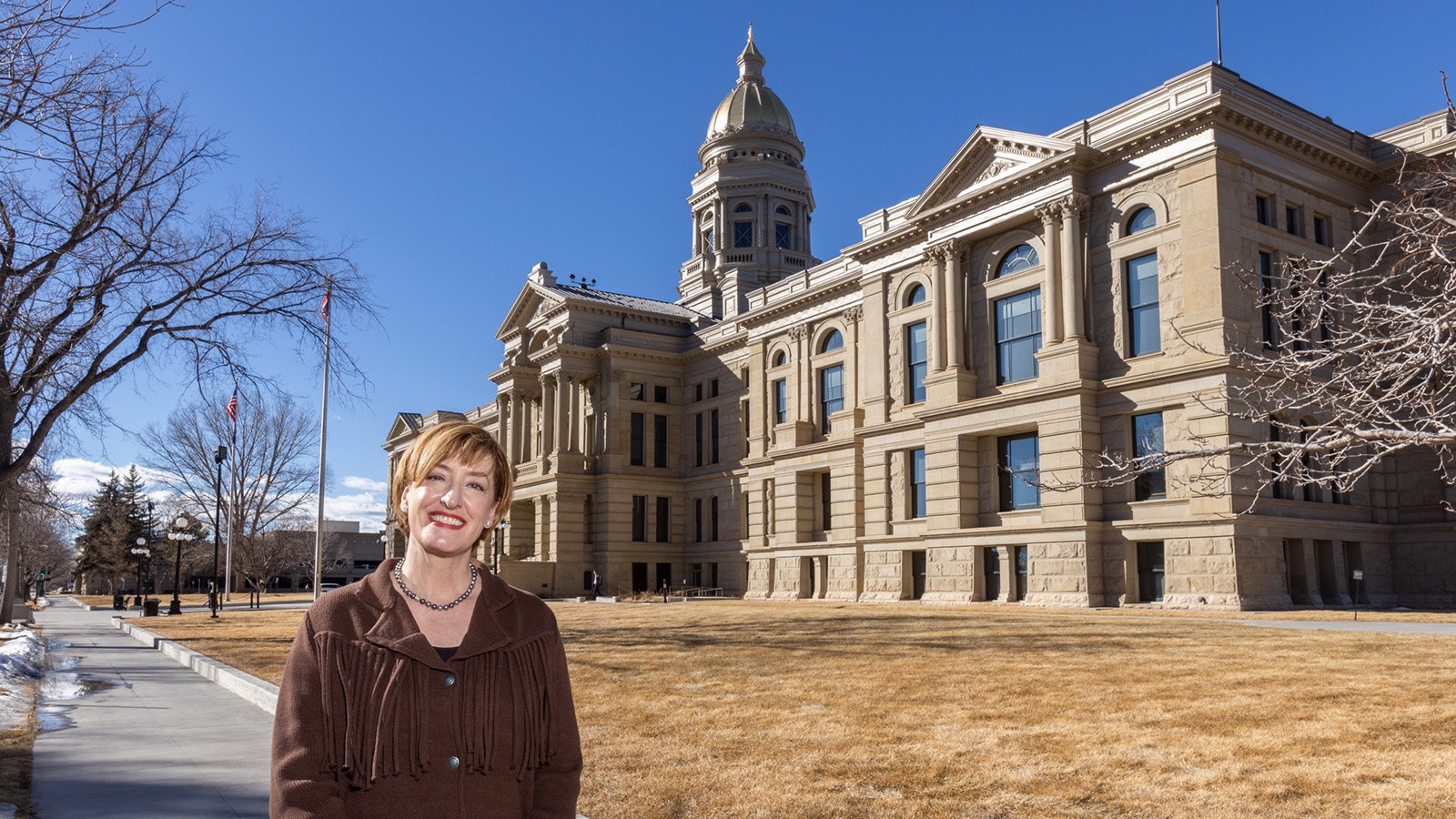A large chunk of Wyoming’s digital asset laws has taken a beating, with a Wyoming court ruling that one of its digital asset banks is not entitled to a master account after all, despite 100 or so meetings between Wyoming and the Federal Reserve to develop its state special purpose depository institution (SPDI) charter.
Wyoming Judge Scott W. Skavdahl found that Custodia Bank has no statutory entitlement to a master account, despite being a lawfully chartered state bank.
Custodia had argued that under the nation’s dual banking system, the Federal Reserve Bank of Kansas City cannot reject a legally state-chartered bank’s application for a master account.
But Skavdahl rejected that reasoning in what some critics believe to be a reversal of his previous writings in the case.
“Unless the Federal Reserve banks possess discretion to deny or reject a master account application, state chartering laws would be the only layer of insulation for the U.S. financial system,” Skavdahl wrote in his ruling. “And in that scenario, one can readily foresee a ‘race to the bottom’ among states and politicians, to attract business by reducing state chartering burdens through lax legislation, allowing minimally regulated institutions to gain ready access to the central bank’s balance sheet and Federal Reserve services.”
Skavdahl also agreed with the Federal Reserve Bank of Kansas City’s contention that while the Wyoming Division of Banking may have many great purposes and aims, but “protecting the national financial system and implementing national monetary policy are not among them.”
Custodia Bank Looks To Appeal
Custodia Bank told Cowboy State Daily it is looking at all its options, including appeal.
“Custodia and the state of Wyoming did everything we could to work with the Fed to create responsible regulation for crypto,” Custodia Bank spokesman Nathan Miller told Cowboy State Daily in an email. “This is the wrong outcome, and we are considering all our options, including an appeal.
“If this decision stands, only the big leveraged New York banks at the center of the financial system will be allowed to bank the crypto industry through bitcoin ETFs. And they do this without the risk management protection that Wyoming’s banks proposed.”
U.S. Sen. Cynthia Lummis, meanwhile, called the decision disappointing.
“The Federal Reserve’s inaction in issuing master accounts is unacceptable,” she told Cowboy State Daily in an email. “I am disappointed in today’s court ruling that goes against clear laws enacted by Congress. Wyoming’s special purpose depository institutions have the right to have access to master accounts. It is past time the Fed follows the clear intention of laws passed by Congress.”
State Sen. Chris Rothfuss, D-Laramie, told Cowboy State Daily the matter will be a topic taken up in the interim to see what direction Wyoming should take next.
“I’m hopeful that Custodia will pursue an appeal,” Rothfuss said. “And I’d actually like to see the state of Wyoming step in directly if we’re going to have our SPDI banks denied access to the Federal Reserve banking system.”
Toomey Had Strong Words On Ruling
Part of Skavdahl’s final ruling included analysis of an amendment to the Federal Reserve’s congressional mandates, introduced by former Pennsylvania Sen. Pat Toomey, who filed an amicus brief in the case explaining his legislation.
Toomey told Fox Business that the judge appeared to have completely ignored his amicus brief explaining the true intent of the amendment he introduced, reaching an opinion that is “completely contradictory and inconsistent” and “completely wrong.”
In Toomey’s amicus brief, he had written that his amendment could not be read as Congress’ “imprimatur on Federal Reserve Banks holding carte blanche to grant or deny master account applications.”
Skavdahl, however, wrote in his final ruling that if Congress had intended to remove the ability of the Federal Reserve Bank to deny master account applications, there would be “no reason for Congress to now require a public database indicating which master account applications have been granted and which have been denied.”
The amendment thus, in and of itself, “confirms that Federal Reserve banks may ‘reject’ applications from depository institutions.”
Toomey told American Banker that he had simply wanted the Federal Reserve to be more transparent.
“Knowing that they did, in fact, approve some, deny others, sometimes reverse themselves as they did in the case of an applicant from Colorado, I simply wanted them to be required to disclose this,” Toomey said. “For someone to come along and say the disclosure means you approve of and condone the practice is so illogical. It is a willful refusal to read the English language as it is written.”

Another Reversal
Toomey also said that the judge’s latest ruling in Custodia’s case appears quite different from what the judge wrote when rejecting the Federal Reserve’s three attempts to dismiss the case.
At that time, Skavdahl wrote that Toomey’s amendment could not necessarily be read as Congress deciding to make applications for master accounts from state-chartered banks discretionary.
“It is public knowledge that master account applications have been ‘rejected’ or denied for non-discretionary reasons in the past,” Skavdahl wrote at the time. “For example, in Fourth Corner, the district court dismissed the credit union’s lawsuit after determining FRBKS could not have issued a master account in that case because doing so would have aided the credit union in providing banking services to marijuana-related businesses, which would have violated federal drug laws.”
Those type of non-discretionary rejections, however, did not mean that Toomey’s James Inhofe National Defense Authorization Act for Fiscal Year 2023 Amendment to the Federal Reserve could carry the “statuary construction load the Board of Governors asserts it does,” Skavdahl wrote in his orders dismissing three separate attempts by the Federal Reserve to dismiss the Custodia Bank case.
A Blow To Wyoming’s Digital Asset Aspirations
What happened between the dismissal of the Federal Reserves motions and the final rulings “begs the question,” Rothfuss said, of what happened in the interim.
“A lot of this decision does seem contrary to those earlier views,” Rothfuss said. “And there wasn’t a lot of explanation to support the change from those earlier positions, which, in my view, seems more reasonable.”
Rothfuss said the ruling was particularly disappointing given how closely Wyoming worked with the Federal Reserve in crafting its SPDI laws.
Rothfuss has told Cowboy State Daily that Wyoming had more than 100 meetings to discuss the legislation with the Federal Reserve Bank of Kansas City, so that Wyoming’s framework would be to their liking.
At one time, the law contained a clause that would have required the Wyoming attorney general to file suit if SPDIs were denied access to the Federal Reserve. Rothfuss said that was taken out after the Federal Reserve assured lawmakers that Wyoming’s SPDI charter was acceptable to them.
Custodia Bank, meanwhile, was even told its application had no “showstoppers” at one point during the application process. Then, there was a new administration, and suddenly everything seemed to change.
Operation Chokepoint 2.0?
Wyoming’s SPDI law is perhaps 40% of the digital asset framework the Cowboy State has been setting up in a bid to capture a nascent industry as it is developing, similar to the way South Dakota captured the credit card industry 40 or so years ago.
At that time, the credit card industry faced its own opposition, but South Dakota forged ahead anyway and, as a result, succeeded in a big way in diversifying its economy.
Today, it is still headquarters to credit card companies, which has brought thousands of jobs to the state.
Without a master account, which is essentially a bank account for banks, state-chartered banks are like second-class citizens in the banking sector, reliant on other banks for many of the services they provide.
That creates extra cost and logistical problems.
Accessing those services through other banking institutions, meanwhile, has become difficult, according to former state Rep. Tyler Lindholm, who was instrumental in helping write some of Wyoming’s digital asset laws. Lindholm said he believes a second Operation Chokepoint is underway with the Biden administration, one that is aimed at restricting any crypto activities to favored federal banks, like those in New York, which have been allowed to offer services similar to those Custodia wanted to offer.
Operation Chokepoint was a 2013 initiative under then President Barack Obama revealed in a Wall Street Journal article. The initiative sought to debank politically incorrect businesses like firearms dealers, payday lenders and other entities. The Obama administration claimed that while these businesses were operating legally, they were at higher risk for fraud and money laundering.
“The Biden administration’s hand was forced where they had to go negative on crypto because Sam Bankman-Fried is one of the biggest frauds in the crypto space, arguably one of the biggest frauds in U.S. history,” Lindholm said. “And because Biden accepted dollars from a fraudster, the state of Wyoming is going to be left on the hook, even though we did everything 100% correct.
“We consulted with the Federal Reserve. We consulted with our own chartering process, with our state banking board, and the Division of Banking. We checked all of those boxes.”
State’s Rights, Two-Tiered Banking System In Peril
Rothfuss told Cowboy State Daily that the ruling is not just a blow to Wyoming’s aspirations in the digital asset realm. The ruling is also undercutting the nation’s two-tier banking system, which, up until now, had been interpreted to say that duly authorized state-chartered banks could access the Federal Reserve’s services directly, just as federal banks do, through a master account.
“Obviously, we have to have our SPDI banks accepted into the Federal Reserve process to realize many of the intended business models,” he told Cowboy State Daily. “And, in my view, the denial is a slap in the face for the two-tier banking system and for state rights.”
That’s an assessment Lindholm agrees with wholeheartedly.
“The state of Wyoming in particular, all states essentially, were told by this federal judge that the two-tiered banking system is not really relevant anymore,” Lindholm said. “And that the squeeze by the Federal Reserve to consolidate banks is very much a real thing, and a very much allowable situation — which runs counter to the Federal Reserve Act.”
Lindholm also took issue with the judge’s comments about a “race to the bottom.”
“The majority of banks in the United States are state regulated,” Lindholm said. “We just had a federal judge come out and say that essentially, state regulations are a race to the bottom. Which is kind of asinine when you think about all of these spot Bitcoin ETFS that are all being banked in New York.”
But, unlike Wyoming’s SPDI laws, which require that banks handling such assets don’t lend the money out and instead keep 100% of the value on reserve, the New York banks are allowed to meet what Lindholm considers a much lower standard.
“New York allows for rehypothecation,” Lindholm said, referring to the practice of using customer assets as collateral to finance loans, which increases default risks. “New York allows for different types of practices that have been considered to be predatory, at the very least, in nature. Whereas little Wyoming steps up to the plate and says we can actually do a pretty good job of this. Here’s our opportunity. And, of course, we’re rejected because we’re not New York.”
Meier: Ruling Protects Two-Tiered Banking System
Scott Meier with the Wyoming Banking Association had a different take on the ruling.
“I’m pretty sure that what the Federal Reserve is saying is that we just have to be able to asses the risk factor that’s out there and make sure that it is properly regulated so that a lot of folks don’t lose money,” he told Cowboy State Daily.
Meier believes the nation’s two-tier banking system works well, but doesn’t necessarily agree that Wyoming’s SPDIs are really banking.
“They’re not even allowed to lend,” he said. “So, really, all they do is they are institutions that charge some fees.”
Meiers feels that the judge’s ruling is actually protecting the two-tiered banking system by ensuring that things don’t go off the rails.
“It remains to be seen where this all plays out,” Meier said. “As long as they are subject to the same regulations, which I assume that they will be at some point in time when they’re reopened for business, but I don’t see them as a risk so much to the two-tiered banking system as long as they get treated the same way.”
Meier added that he wasn’t at any of the 100 or so meetings Wyoming had with the Federal Reserve to craft its laws in accordance with that agency’s rules.
“It seems to me there may be a difference between we don’t have any problem with you applying,” Meier said. “Because you could apply for a master account, I could apply for a master account. I’m not sure it would go very far. But if the discussion was, ‘We don’t have any problems, they don’t foresee any issues with you applying,’ that may be different than, ‘We don’t see the issues and we’d be willing to grant you one.’
“Those are two different things, and I don’t know, I wasn’t in those meetings.”
Renée Jean can be reached at renee@cowboystatedaily.com.





